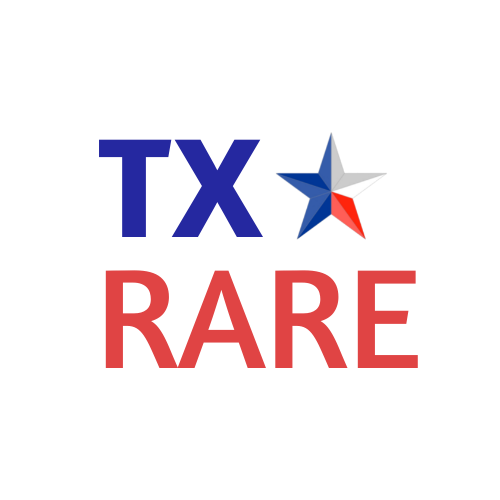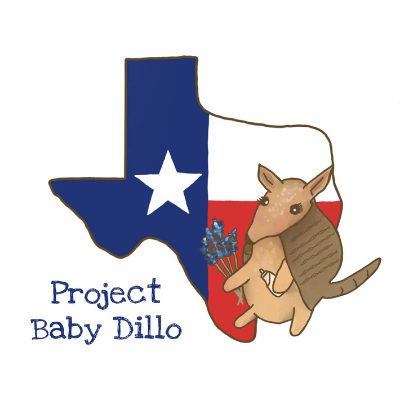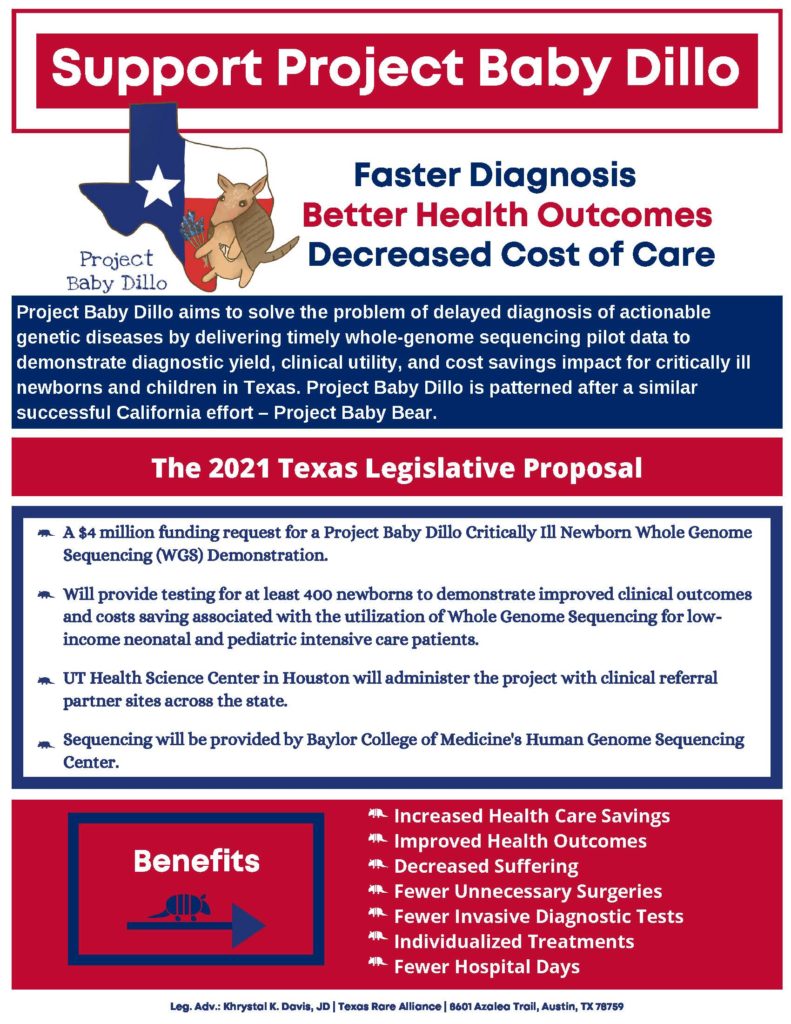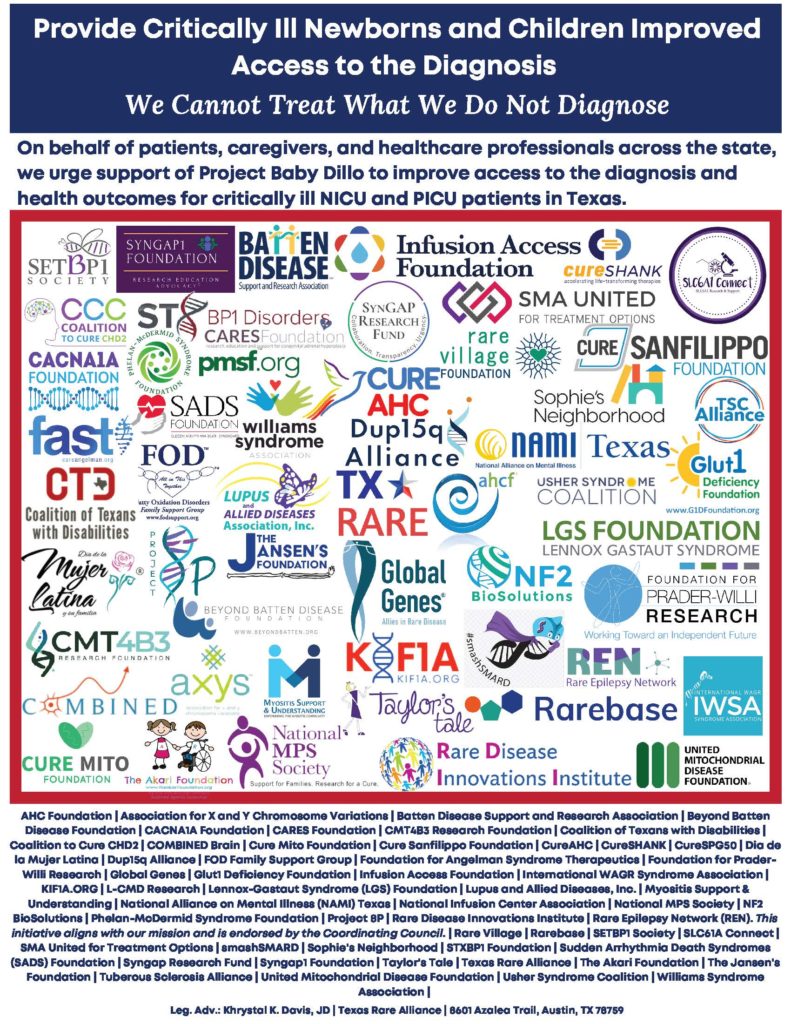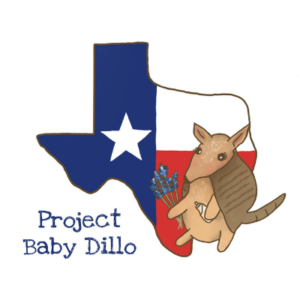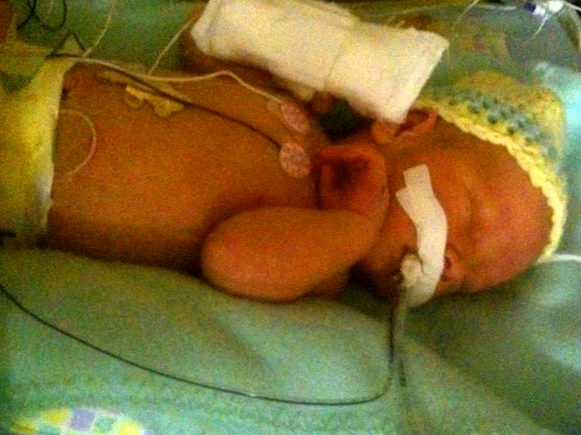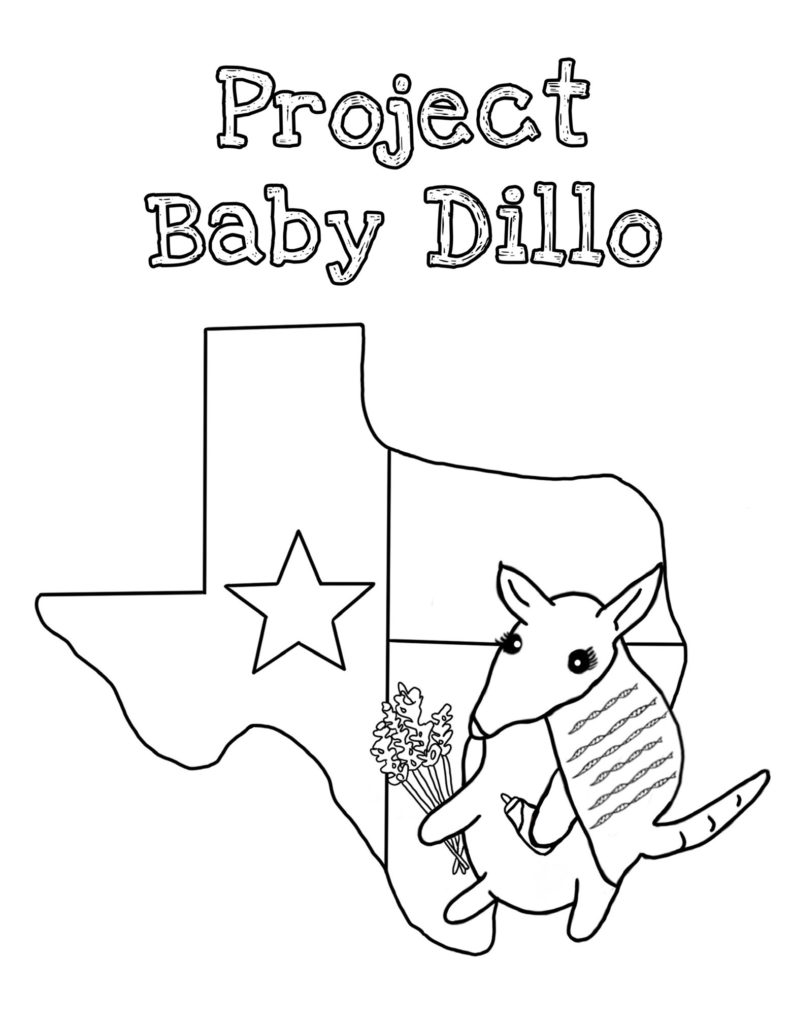- AHC Foundation
- Association for X and Y Chromosome Variations
- Batten Disease Support & Research Association
- Beyond Batten Disease Foundation
- CACNA1A Foundation
- CARES Foundation
- Cheyanna's Champions 4 Children
- CMT4B3 Research Foundation
- Coalition of Texans With Disabilities
- Coaltion to Cure CHD2
- COMBINED Brain
- Cure Mito Foundation
- Cure Sanfilippo Foundation
- CureAHC
- CureSHANK
